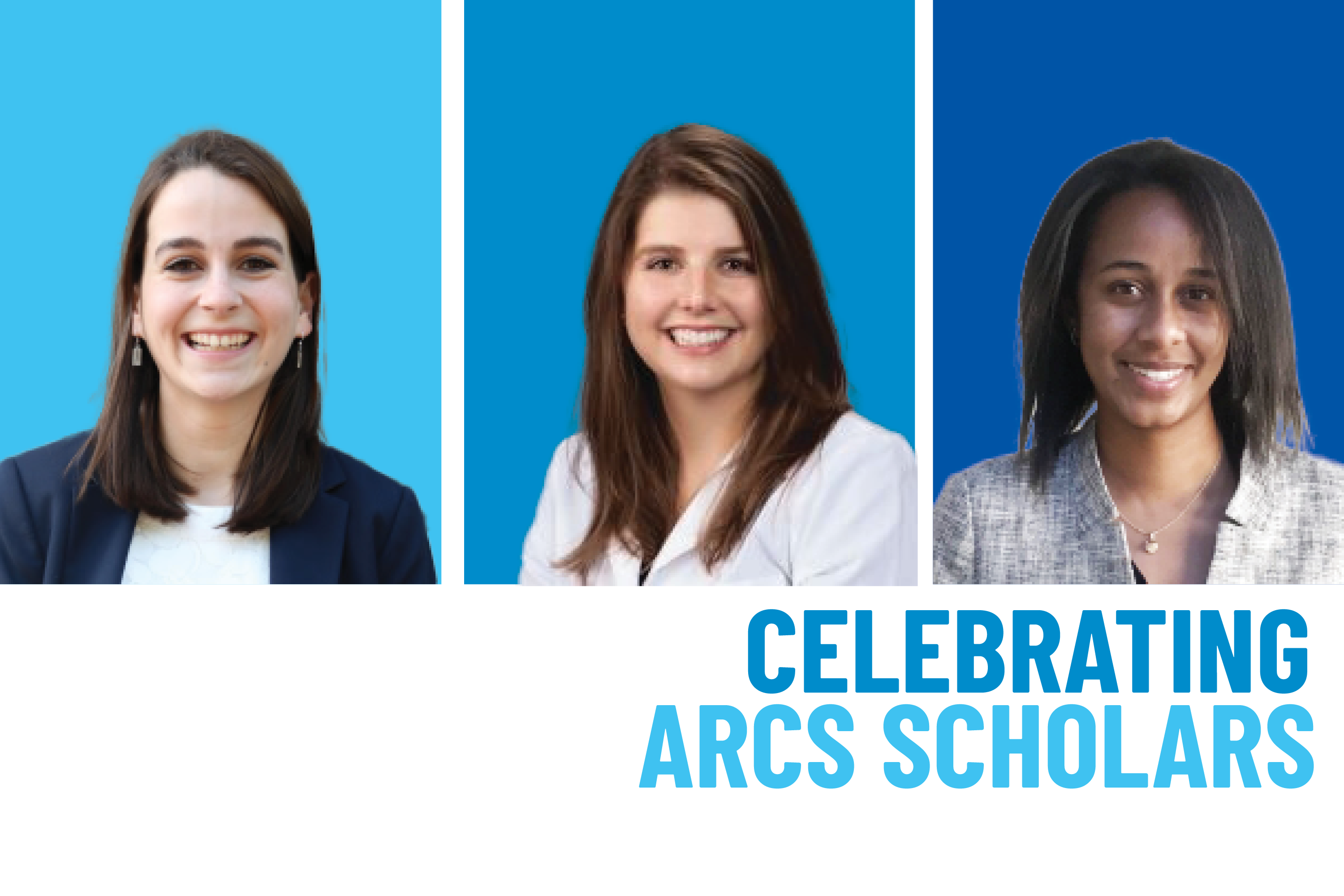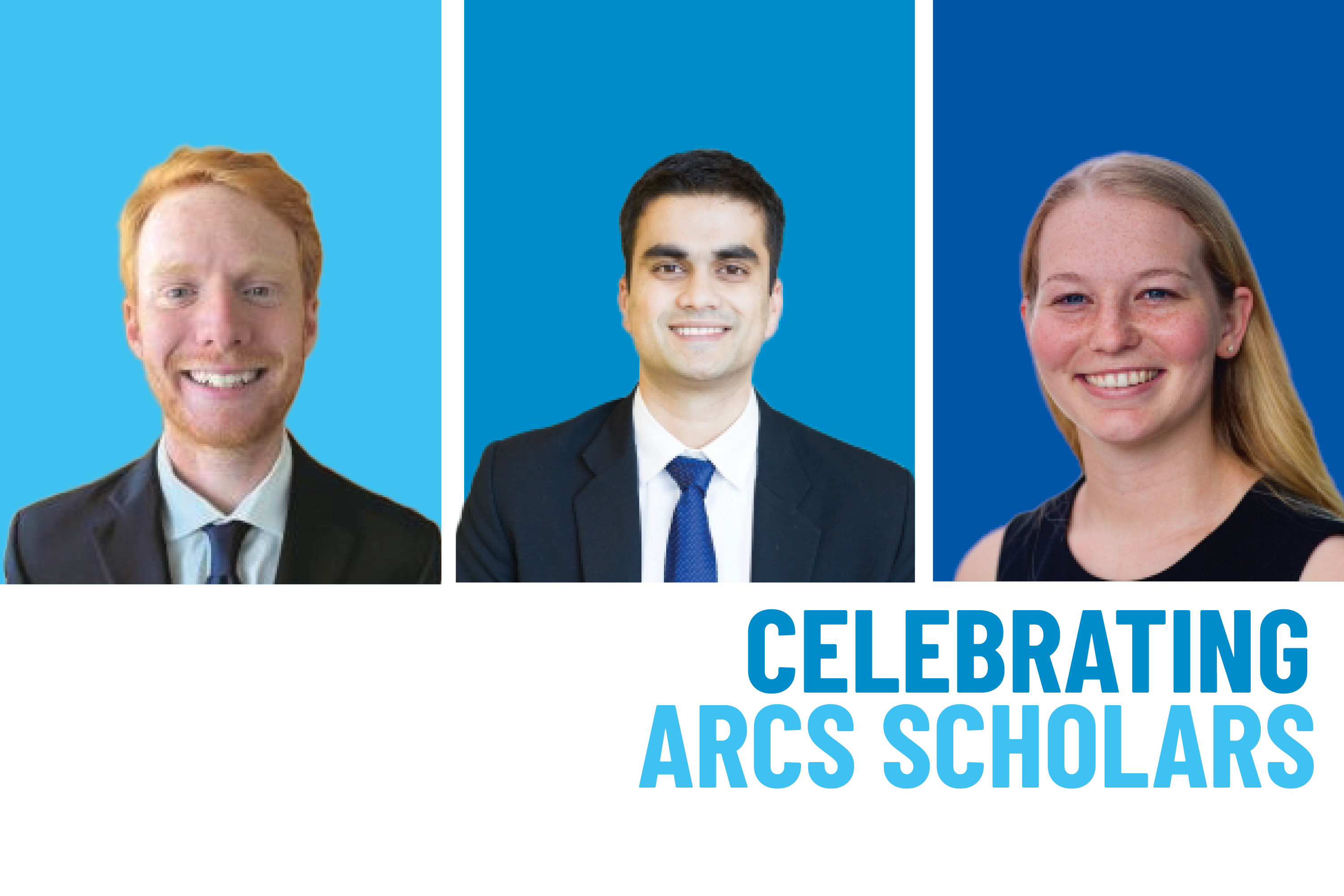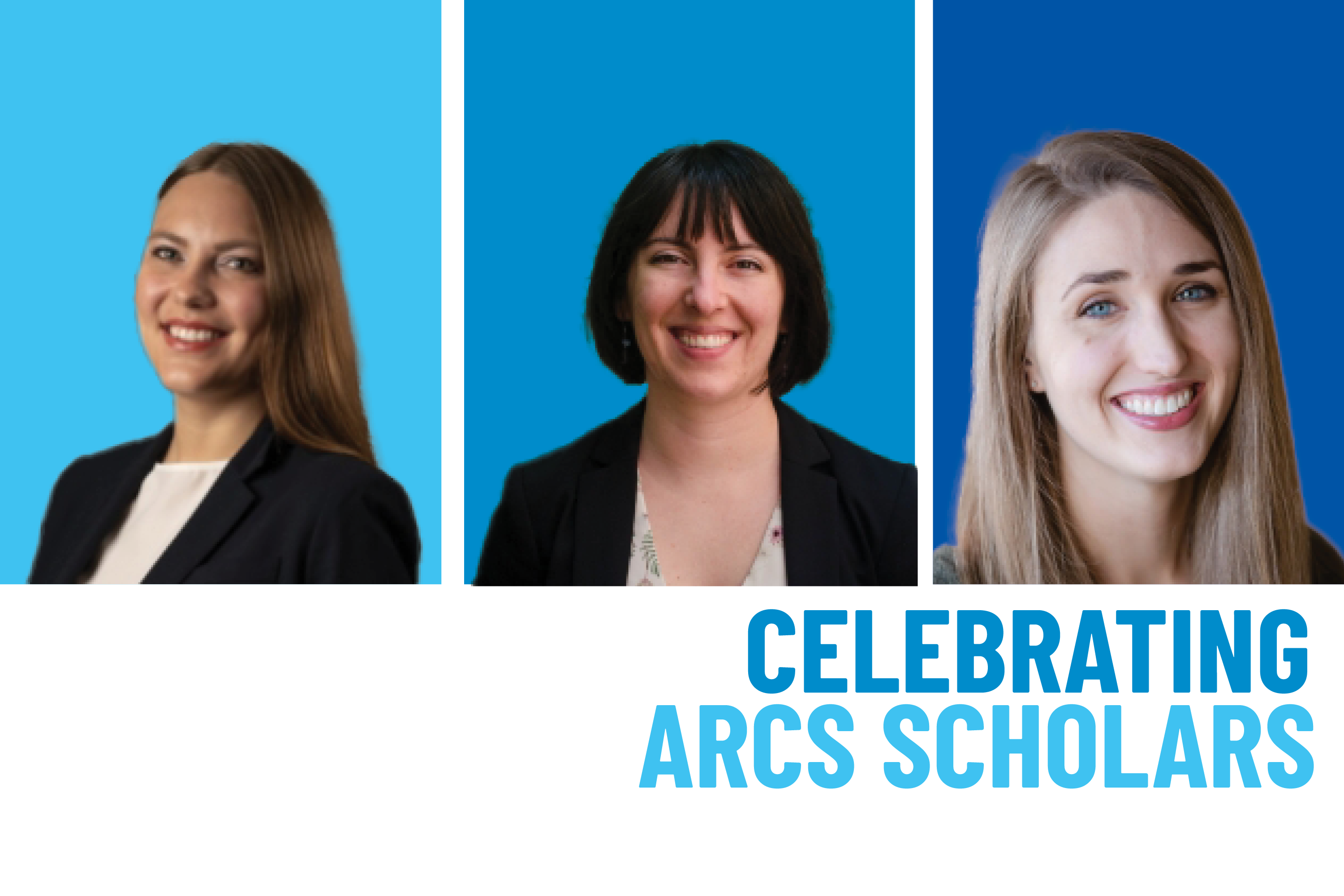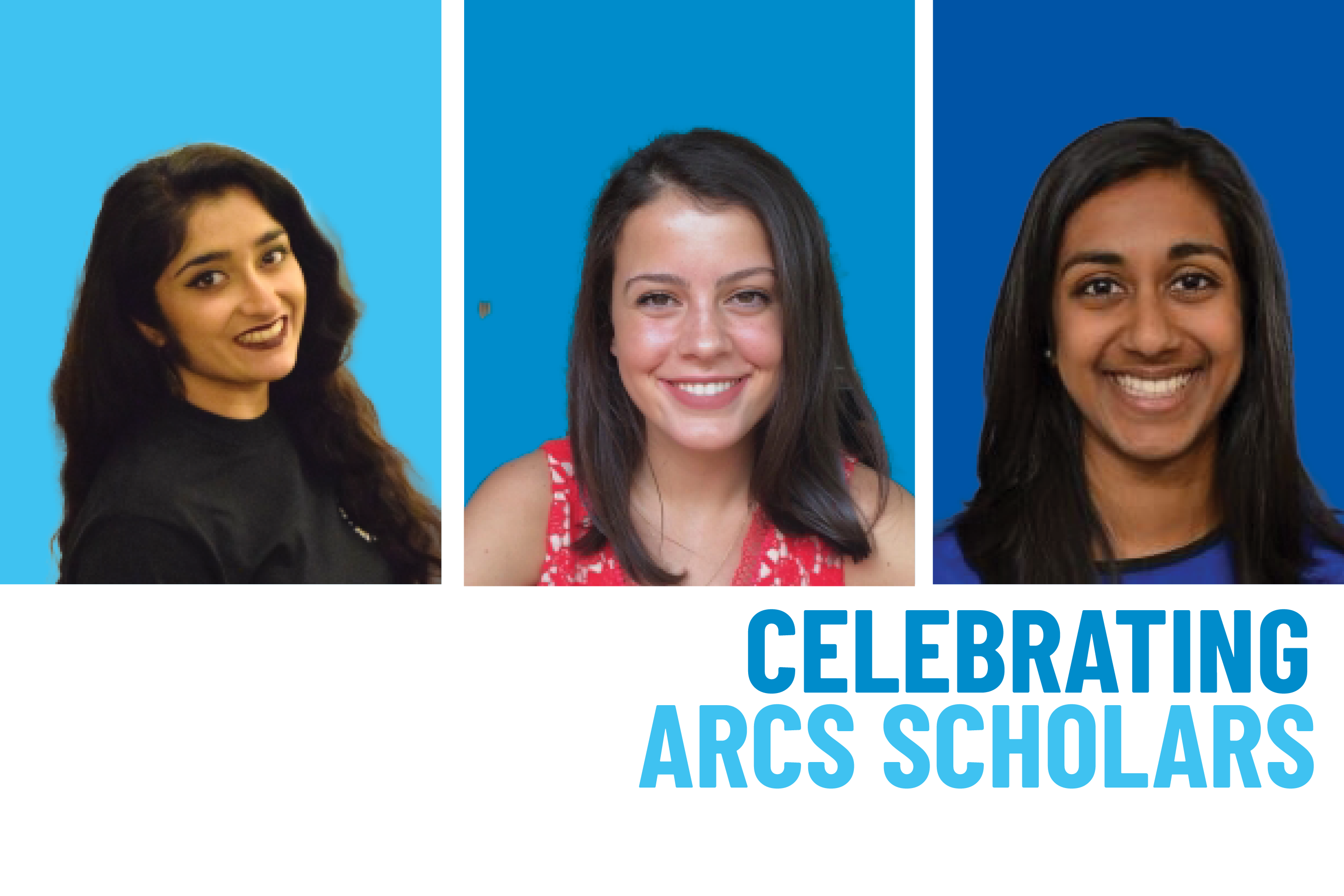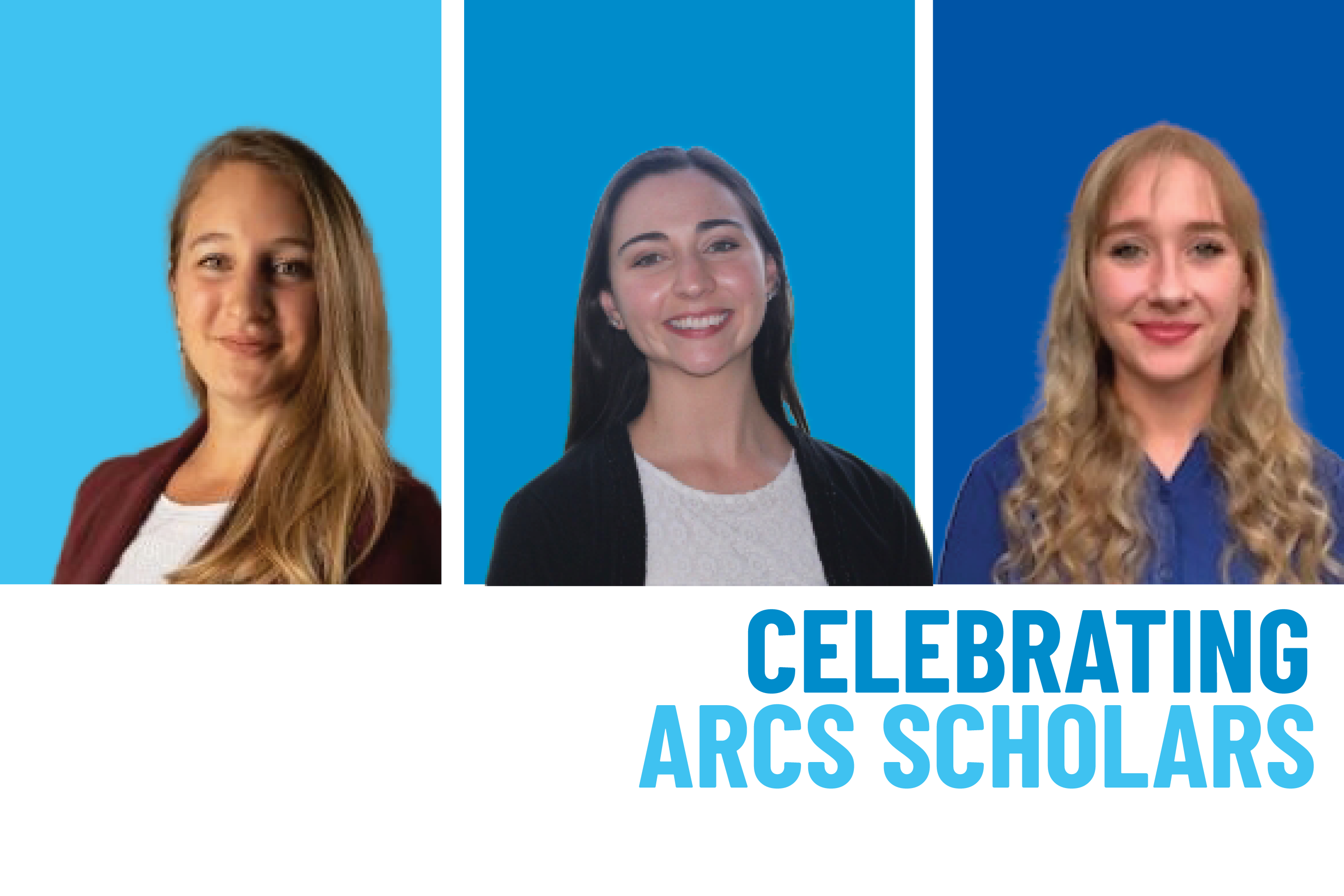Celebrating ARCS Scholars
ARCS Foundation Fosters a Community of Support for the Next Generation of Scientists
For almost thirty years, the ARCS Foundation has partnered with Emory University to enable academically outstanding students to pursue scientific scholarship. By providing unrestricted financial support, this organization allows recipients to give their undivided attention to their research and reduce the potential financial strain of advanced education.
The ARCS Foundation has remained unwavering in its mission to ensure a promising future for science in America and it all began with a resolute belief in the power of scholarship.
In 1958, the world watched as space exploration and technological advancement challenged prior notions of what was possible. With the space race at the forefront of scientists’ minds, the nation wondered how to best strengthen scientific leadership and position the country to become a major force in global innovation.
A group of women in California responded to this national aspiration with a plan to make research more accessible. Scholarship funding and financial support for students to pursue graduate education could become the gamechanger that would elevate the future of discovery and shape the trajectory of science for years to come. Thus, the ARCS Foundation was born.
ARCS approached moving the needle in science by actually investing in scientists. They expanded nationally by developing relationships in the community and engaging donors, enabling them to provide unrestricted support to scholars at leading universities. Today, they have 15 chapters across the United States and have awarded $120 million to more than 10,000 ARCS Scholars.
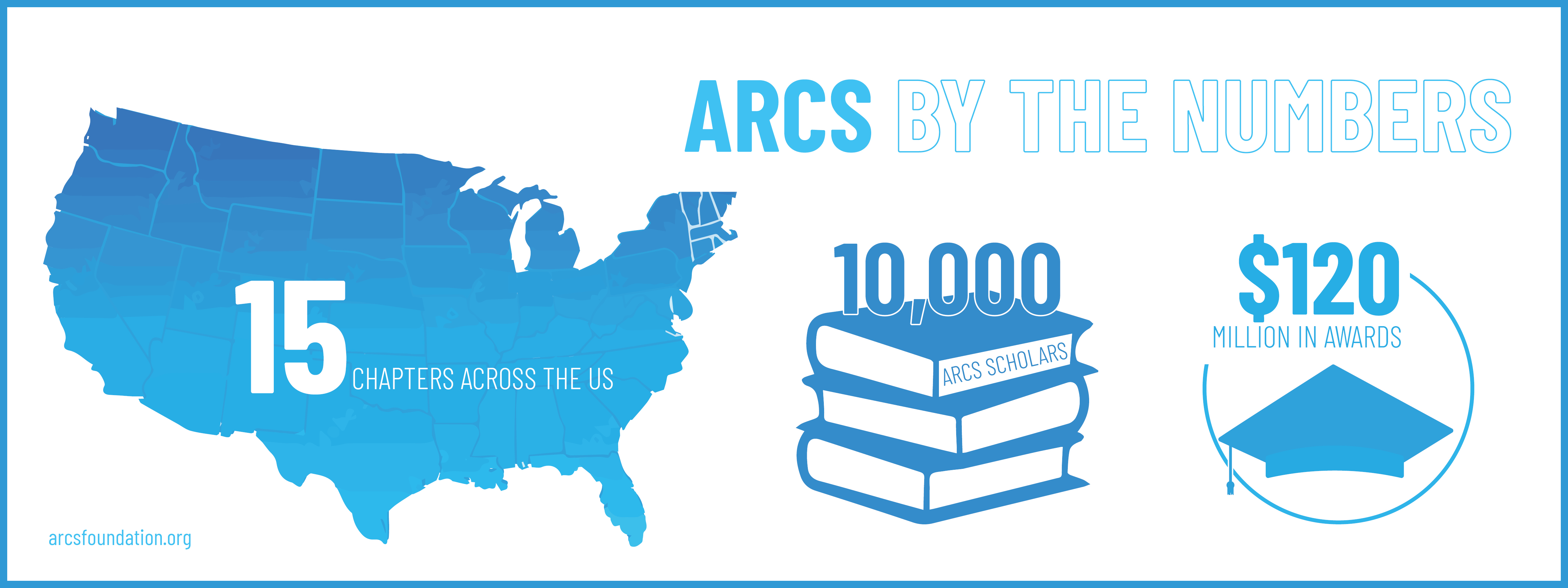
In 1992, Emory University was invited, along with Georgia Tech and Morehouse College, to be partners in forming the Atlanta chapter of ARCS. Currently, the chapter is comprised of 150 women whose generosity allows Georgia scholars in STEM research to cover associated expenses that arise throughout their academic journey.
“Being an ARCS Scholar has alleviated the financial burden of being in graduate school,” said Sarah Strassler, PhD candidate of Biological & Biomedical Sciences and the one of the 15 active Emory ARCS Scholars. “For example, when my work switched to remote during the COVID-19 pandemic, the support from ARCS allowed me to purchase the necessary materials to set up my home office such as an external monitor and the necessary computer programs.”
The benefits of being a part of this national network of scholars extends far beyond the scholarship funding. Students who become ARCS Scholars are connected with hundreds of academic partners and alumni, united by the belief that science scholars remain the most promising resource. By design, this community serves to encourage and motivate scholars as their work lays the foundation for societal strides and scientific breakthroughs.
“In STEM fields, you can sometimes feel that your work is far removed from ‘real life,’ but the ARCS Foundation shows its scholars that it values their work."
This scientific community of scholars includes notable figures such as Christopher Stubbs, who made an impact on physics through his detection of the expansion of the universe; Jessica Meir, who conducted research while serving as Flight Engineer on the International Space Station and led a historic all-female spacewalk to inspire students to pursue STEM careers; and Neil DeGrasse Tyson, who has increased scientific awareness for millions.
“ARCS has provided a supportive community for whenever ‘imposter syndrome’ creeps in,” said Strassler.
The current class of ARCS Scholars is already making major contributions to the science community at large, as well as enriching Emory’s overall academic community. Nine out of ten ARCS Scholars work within their sponsored fields after graduating, and Emory’s current class of scholars appear no different.
Kate Holmes studies the impact of an evolutionary force called genetic drift, which is the change in the frequency of an existing gene variant in a population due to random chance, on the evolution of influenza viruses. This research will be influential in the way virus biology is understood, yielding insights on how to reduce the disease burden of influenza viruses on society. Julia Tanquary explores the bacterial toxin-antitoxin systems which interact with the bacterial ribosome to stop the process of translation and halts growth. These toxin-antitoxin systems could possibly play a role in helping bacteria survive antibiotics that would normally kill them. Zerleen Quader, a recent graduate of the program, researches the risk factors for childhood obesity, specifically examining how factors related to school quality influence childhood physical activity and weight status.
“Being an ARCS Scholar has been very helpful in providing me with additional support while I finished my dissertation these past two years,” said Zerleen, who will be starting a role within Epidemiologic Intelligence Service at the Centers for Disease Control and Prevention this year.
With post-graduate aspirations ranging from furthering research to becoming science educators themselves, the ARCS scholars at Emory are building upon the legacy once imagined by the women who founded ARCS back in 1958.
Laney Graduate School will celebrate the accomplishments of these scholars and honor the ARCS Foundation donors on May 26th with a private tour of the Heemstra Laboratory, followed by a spring luncheon with Laney Dean Kimberly Jacob Arriola. Led by Dr. Jen Heemstra, her research program explores the utilization of nucleic acid molecular recognition and self-assembly to generate functional architectures for biosensing and bioimaging.
“The support ARCS Foundation Atlanta provides enables talented scholars to do leading-edge research that has the potential to change the world. By investing in these scholars, ARCS Foundation Atlanta is investing in the future of science and our society more broadly.”
To learn more about the ARCS Foundation, including Emory’s ARCS Scholars, please click here.
